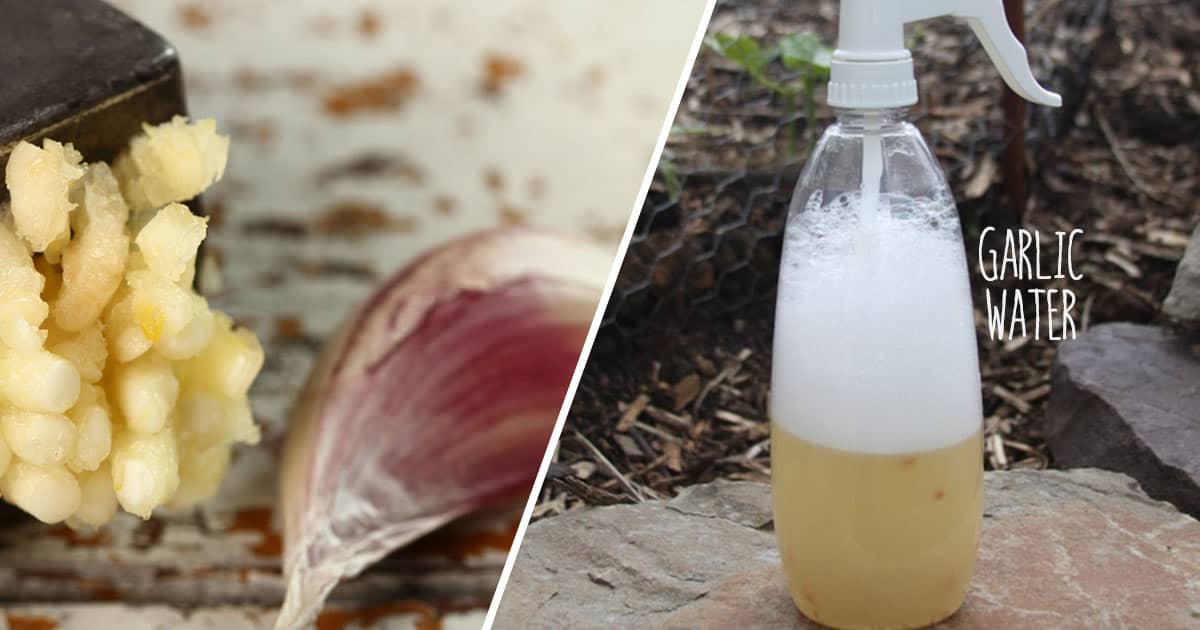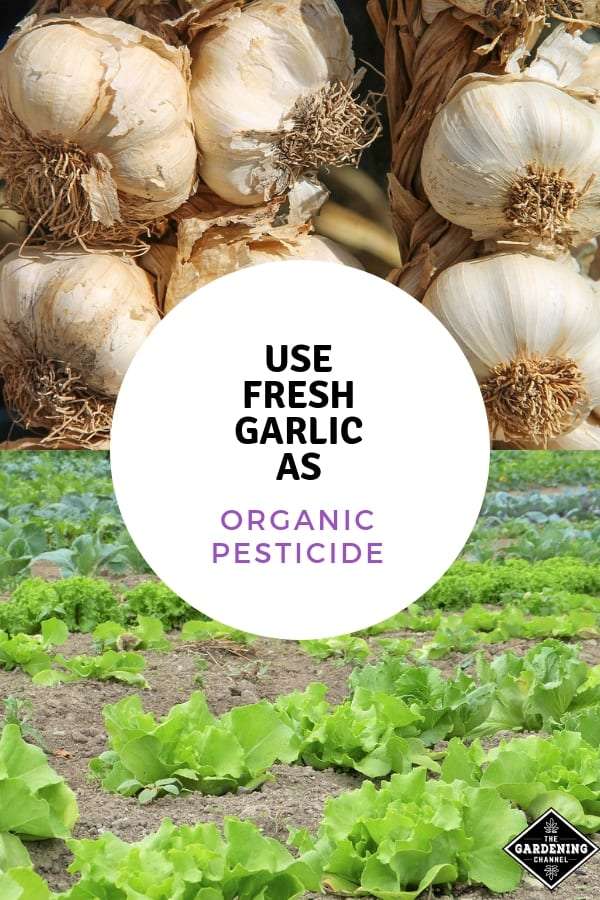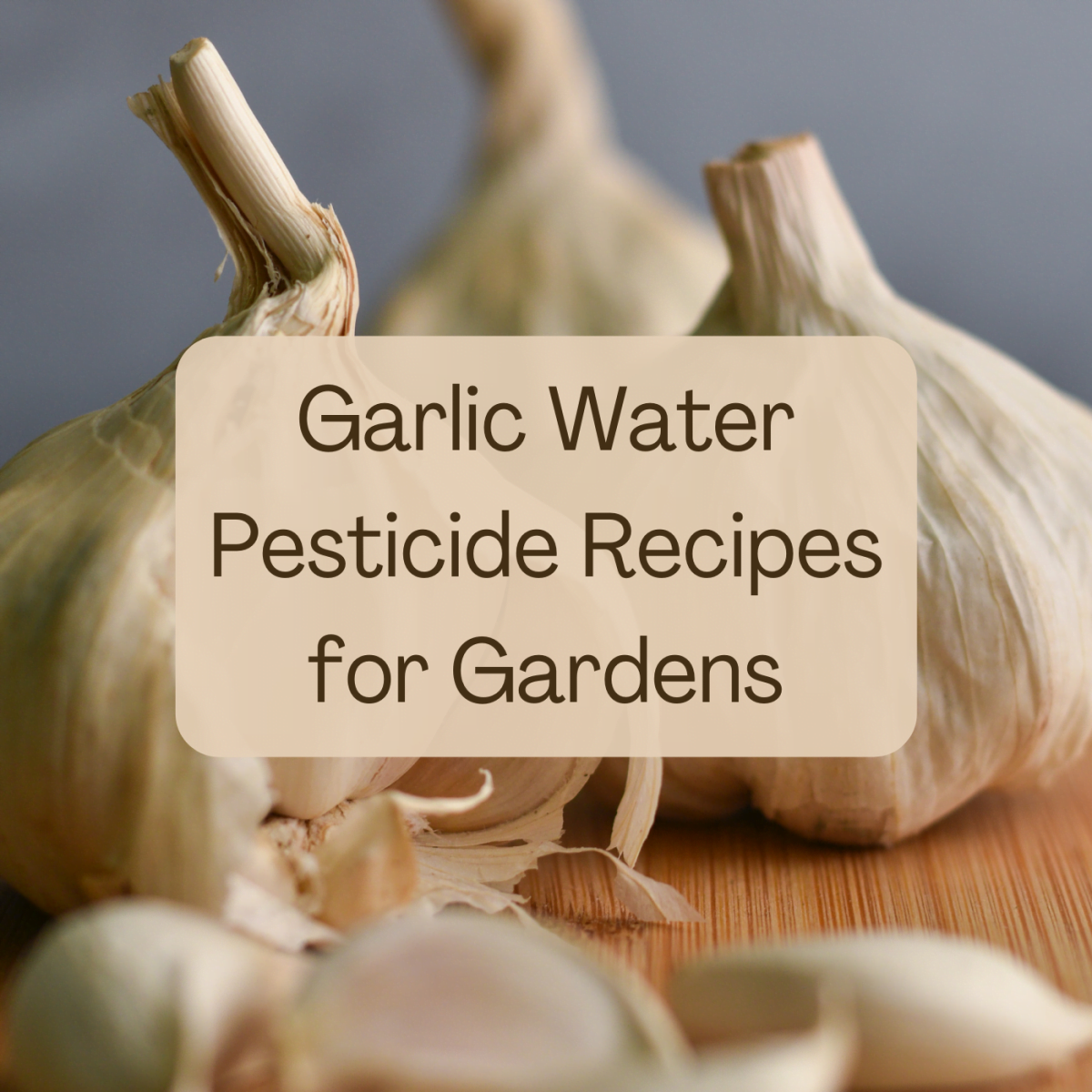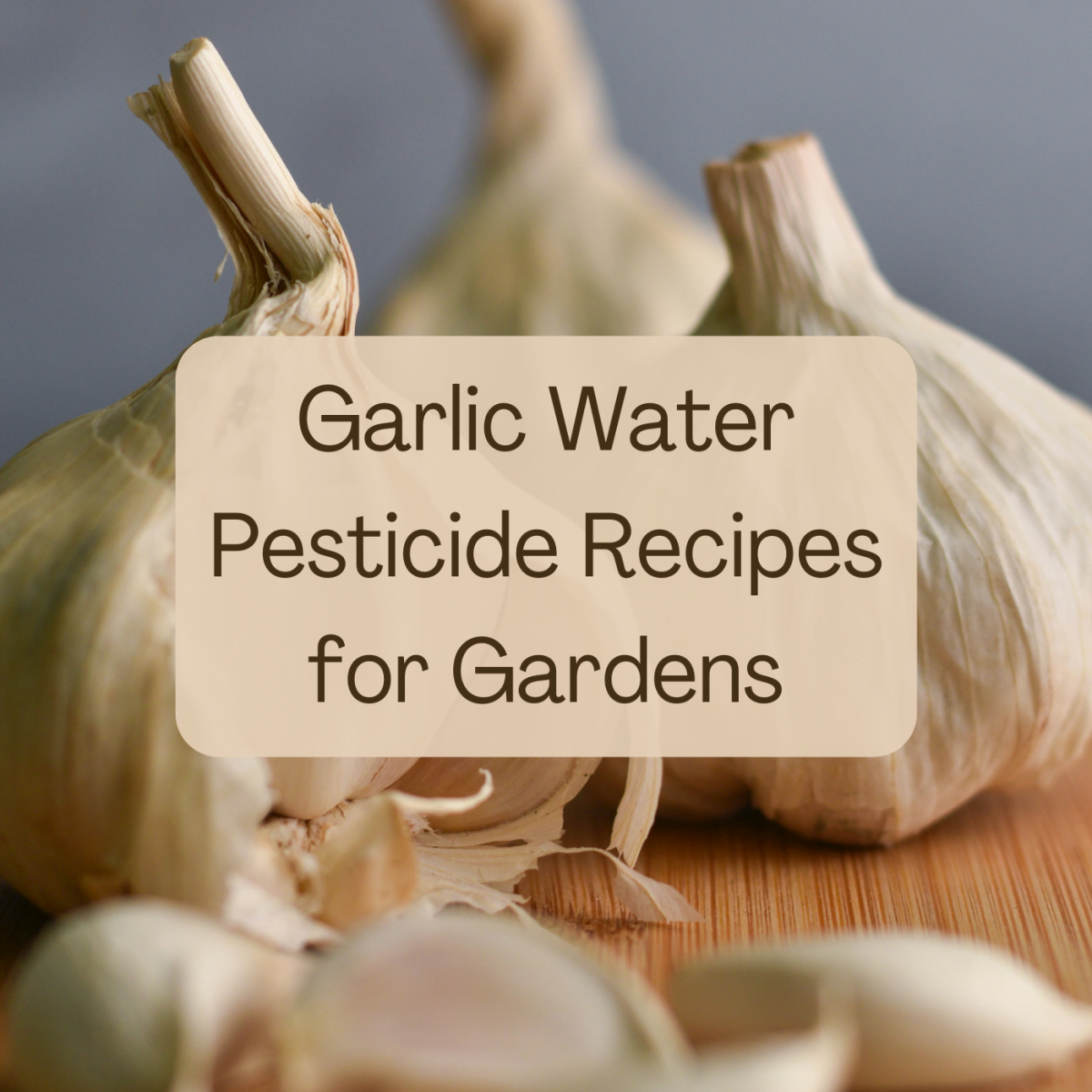If you’re on a quest for a natural and eco-friendly solution to keep those pesky pests at bay, then look no further than garlic. Yes, you read that right – garlic. It turns out that this kitchen staple not only adds flavor to your favorite dishes but can also be a powerful pesticide. By either using garlic spray or strategically planting garlic next to your plants, you can effectively repel a wide range of insects, including aphids, mites, caterpillars, beetles, and even mosquitoes. While it won’t outright eliminate these pests, it acts as a strong deterrent. So, if you’re ready to embrace the power of garlic and give your garden a pest-free upgrade, keep reading to discover the wonders of this natural solution.
Beneficial Properties of Garlic as a Pesticide
Garlic is not only a flavorful ingredient in the kitchen but also a powerful tool in pest control. As an eco-friendly pesticide, garlic can effectively repel pests in the garden while minimizing harm to the environment. Its natural properties make it an attractive alternative to chemical pesticides, providing a safe and sustainable solution for gardeners.
Garlic as an eco-friendly pesticide
One of the biggest advantages of using garlic as a pesticide is its eco-friendly nature. Chemical pesticides often contain toxic substances that can harm the environment, as well as beneficial insects and wildlife. Garlic, on the other hand, is a natural and organic option that does not pose such risks.
Garlic contains natural compounds such as allicin, which give it its strong odor and flavor. These compounds act as a natural repellent for many pests, driving them away from plants and protecting them from potential damage. By using garlic as a pesticide, you can maintain the health of your garden without compromising the well-being of the ecosystem.
Effectiveness of garlic in repelling pests
Garlic has proven to be an effective method of repelling pests in the garden. The strong scent of garlic is particularly effective in deterring small flying or crawling insects that can cause harm to plants. By using garlic spray, you can create a powerful deterrent that keeps pests at bay.
Garlic spray can be easily made by blending garlic bulbs with water and straining the mixture. This homemade pesticide can then be sprayed directly onto plants or on areas where pests are commonly found. The strong smell of garlic will repel pests and discourage them from approaching your plants, reducing the risk of infestation and damage.
Garlic as a Natural Repellent
Garlic’s repellent properties make it an excellent natural deterrent for a wide range of pests. It can be used not only in the form of garlic spray but also by planting garlic near affected plants. Let’s explore these methods of using garlic as a pesticide in more detail.
Garlic spray as a natural deterrent
Garlic spray is a simple and effective way to deter pests in your garden. By blending garlic bulbs with water and straining the mixture, you can create a potent homemade pesticide. The strong odor of garlic in the spray will repel pests, making them less likely to approach your plants.
To use garlic spray, simply transfer it to a spray bottle and apply it directly to your plants. Make sure to cover both the upper and lower surfaces of the leaves, as this is where many pests tend to reside. Reapply the spray regularly, especially after rainfall or heavy watering, to maintain its effectiveness.
Using garlic plants for pest repellent
In addition to using garlic spray, you can also harness the repellent properties of garlic by planting garlic near affected plants. Certain pests are deterred by the smell of garlic and will actively avoid areas where garlic is present. By strategically placing garlic plants throughout your garden, you can create a natural barrier that keeps pests at bay.
Planting garlic near affected plants not only repels pests but also provides a source of fresh garlic for your culinary endeavors. Garlic is a versatile herb that can enhance the flavor of many dishes, making it a beneficial addition to any garden.

Pests Repelled by Garlic
Garlic’s strong odor can repel a variety of pests in the garden. By incorporating garlic as a pesticide, you can effectively deter common garden pests, reducing the risk of infestations and damage.
Aphids and mites
Aphids and mites are small insects that feed on the sap of plants, often causing stunted growth and deformation. These pests can quickly multiply and infest a garden, wreaking havoc on crops and ornamental plants. However, the pungent smell of garlic is a powerful deterrent for aphids and mites, making them less likely to settle on your plants.
By applying garlic spray or planting garlic near affected plants, you can repel aphids and mites and protect your garden from their destructive presence.
Caterpillars and armyworms
Caterpillars and armyworms are common pests that can devour foliage and damage crops. These voracious eaters can quickly strip plants of their leaves, leaving them weakened and vulnerable to disease. Fortunately, garlic can deter these pests and prevent them from causing significant damage.
The strong scent of garlic acts as a deterrent for caterpillars and armyworms, discouraging them from feeding on your plants. By incorporating garlic as a pesticide, you can safeguard your garden from these destructive pests.
Cutworms and beetles
Cutworms and beetles are pests that pose a threat to a wide range of plants. Cutworms are particularly notorious for chewing through the stems of young plants, causing them to collapse and die. Beetles, on the other hand, can defoliate plants and transmit diseases.
Garlic can effectively repel both cutworms and beetles, providing protection for your plants. Whether you choose to use garlic spray or plant garlic near affected plants, you can create a deterrent that keeps these pests at bay.
Slugs and snails
Slugs and snails are common garden pests that can chew through leaves and damage plants. Their feeding habits can wreak havoc on both ornamental plants and edible crops. However, the strong smell of garlic can deter these slimy intruders, preventing them from causing widespread destruction.
By applying garlic spray or planting garlic near vulnerable plants, you can effectively repel slugs and snails and protect your garden from their voracious appetites.
Mosquitoes and flies
While garlic’s pest-repelling properties are often associated with garden pests, it can also deter nuisance insects such as mosquitoes and flies. These flying pests can not only cause discomfort but also transmit diseases.
Garlic can act as a natural repellent for mosquitoes and flies, making them less likely to bother you in your garden. By incorporating garlic as a pesticide, you can create a more enjoyable outdoor space while keeping these pests at bay.
Methods of Using Garlic as Pesticide
Garlic can be used as a pesticide in various ways, depending on the specific pest you are targeting and the desired level of protection. Let’s explore the different methods of using garlic as a pesticide and how to effectively apply them in your garden.
Preparing garlic spray
To prepare garlic spray, you will need fresh garlic bulbs and water. Start by peeling and crushing several cloves of garlic to release their natural compounds. Then, add the crushed garlic to a container filled with water and let it steep for at least 24 hours. This will allow the active ingredients in the garlic to infuse into the water.
After the steeping period, strain the garlic mixture to remove any solid particles. Transfer the liquid to a spray bottle or any other suitable container for easy application. Your homemade garlic spray is now ready to use!
Application of garlic spray
When applying garlic spray to your plants, it is important to cover both the upper and lower surfaces of the leaves. Many pests tend to reside on the underside of leaves, so ensuring they come into contact with the garlic spray is vital for repelling them effectively.
Spray a fine mist of garlic spray onto the leaves, making sure to evenly coat the entire plant. Reapply the spray regularly, especially after rainfall or heavy watering, to maintain its effectiveness. Remember that garlic spray acts as a deterrent rather than a pesticide that kills pests, so consistent application is key to warding off unwanted visitors.
Planting garlic near affected plants
Another method of using garlic as a pesticide is by planting garlic near affected plants. This can create a natural barrier that pests are reluctant to cross, providing a protective zone for your plants. The strong smell of garlic acts as a deterrent, discouraging pests from approaching and causing damage.
To use this method, simply plant garlic bulbs near vulnerable plants or around the perimeter of your garden. The scent of garlic will permeate the air, repelling pests and reducing the risk of infestation. As a bonus, you will have a fresh supply of garlic readily available for your culinary creations.

Garlic as a Deterrent
Garlic not only repels pests but also plays a significant role in pest control. As a deterrent, garlic prevents pests from causing damage to your garden by driving them away. Understanding the role of garlic as a deterrent is essential for effective pest management.
Garlic’s role in pest control
Garlic’s strong scent is the key to its role as a deterrent in pest control. While pests may be attracted to the smell of certain plants or the tastiness of your crops, the pungent odor of garlic is often a turn-off for them. By incorporating garlic as a pesticide, you create an environment that pests find unattractive, reducing the chances of infestations and damage.
It’s important to note that garlic does not kill pests but rather acts as a repellent. This means that pests may still be present in your garden, but they are less likely to settle on your plants or cause significant harm. By using garlic as a deterrent, you can maintain the health and vitality of your garden while minimizing the need for more harmful pest control methods.
Understanding its effect on pests
The exact mechanism behind garlic’s effect on pests is not fully understood. However, it is believed that the strong smell of garlic overwhelms the olfactory senses of pests, making it difficult for them to locate and settle on plants. The pungent odor acts as a signal to pests that the area is unsuitable for feeding or reproduction, effectively deterring them from causing damage.
Different pests may have varying responses to the smell of garlic, but its overall deterrent effect makes it a valuable tool in pest control. Incorporating garlic into your pesticide arsenal can help create an environment that pests find unappealing, protecting your plants from potential infestations.
Complementary Pest Control Methods
While garlic can be an effective pesticide on its own, combining it with other pest control methods can enhance its effectiveness. By using garlic in conjunction with other pest control techniques, you can create a comprehensive and integrated approach to pest management.
Using garlic in combination with other pest control methods
Garlic can be used alongside other pest control methods to create a multi-faceted approach to pest management. For example, combining garlic spray with physical barriers such as nets or fences can provide a more robust defense against pests. The scent of garlic will deter pests, while the physical barriers prevent them from accessing your plants.
Additionally, companion planting can be a valuable technique when used in conjunction with garlic as a pesticide. Certain plants have natural pest-repellent properties and can enhance the deterrence effect of garlic. For example, planting marigolds near garlic can help repel nematodes and other soil-dwelling pests, offering an extra layer of protection for your plants.
Enhancing effectiveness with integrated pest management
Rather than relying solely on garlic as a pesticide, consider implementing an integrated pest management (IPM) approach. IPM focuses on a combination of preventive measures, cultural practices, biological controls, and targeted pesticide use to manage pests effectively. Garlic can be an integral part of an IPM program, providing a natural and sustainable tool in the fight against garden pests.
By incorporating multiple pest control methods and regularly monitoring your garden for signs of infestation, you can stay one step ahead of pests and prevent widespread damage. Remember to use garlic strategically as part of your overall pest control strategy to maximize its effectiveness.

Mechanism Behind Garlic’s Pest Repelling Properties
The smell of garlic plays a crucial role in its pest-repelling properties. Understanding the mechanism behind garlic’s ability to repel pests can provide insight into its effectiveness as a natural pesticide.
Understanding the smell of garlic
Garlic is well-known for its strong and pungent odor, which is a result of the natural compounds it contains. These compounds, such as allicin, give garlic its characteristic smell and flavor. While humans may find the scent of garlic appealing, it has a very different effect on pests.
The strong smell of garlic can overwhelm the olfactory senses of pests, making it difficult for them to locate food sources or suitable habitats. The pungent odor acts as a signal to pests that the area is inhospitable, dissuading them from settling and causing damage. Understanding this characteristic of garlic’s smell is key to its role as a pest repellent.
The olfactory response of pests to garlic scent
Pests have developed highly sensitive olfactory systems that allow them to locate suitable food sources and mates. However, the strong scent of garlic can disrupt these systems and confuse pests, making it challenging for them to navigate and find necessary resources.
When pests encounter the smell of garlic, their olfactory receptors may become overwhelmed or blocked by the garlic odor. This can disrupt their ability to sense attractive scents or to locate plants suitable for feeding or reproducing. As a result, pests are less likely to settle on plants that are protected by the smell of garlic, minimizing the risk of infestations and damage.
While the exact details of the olfactory response in pests are still being studied, it is clear that the smell of garlic can have a significant impact on their behavior. Incorporating garlic as a pesticide capitalizes on this response, providing a natural and effective means of pest control in the garden.
Additional Animals Repelled by Garlic
Garlic’s pest-repelling properties extend beyond insect pests. The strong smell of garlic is also effective in deterring certain animals, making it a versatile tool in pest control.
Rabbits and their aversion to garlic
Rabbits are notorious for their fondness for tender plants and can cause significant damage in gardens. However, the smell of garlic can deter these furry intruders, preventing them from feasting on your plants.
Planting garlic near susceptible plants or applying garlic spray around the perimeter of your garden can create a protective barrier that rabbits find unappealing. By deploying garlic as a pesticide, you can safeguard your plants from the appetites of these herbivores.
Squirrels and the garlic odor
Squirrels can be a nuisance in the garden, particularly when they target fruits, nuts, and bulbs. However, the strong odor of garlic can deter these agile creatures and discourage them from wreaking havoc on your plants.
Placing cloves of garlic near vulnerable plants or using garlic spray in areas frequented by squirrels can create an environment that they find unattractive. By incorporating garlic as a pesticide, you can reduce the risk of squirrel damage to your garden.
Deer’s dislike for garlic scent
Deer can be a major problem in gardens, especially in areas with high deer populations. These foragers can decimate plants, leaving a trail of destruction in their wake. However, the smell of garlic can deter deer and prevent them from causing extensive damage.
Planting garlic near vulnerable plants or using garlic spray in deer-prone areas can create a barrier that these graceful animals are reluctant to cross. By incorporating garlic as a pesticide, you can protect your garden from the appetites of these large herbivores.

Limits of Using Garlic as a Pesticide
While garlic can be a valuable tool in pest control, it is important to acknowledge its limitations. Understanding the boundaries of using garlic as a pesticide can help manage expectations and provide a realistic perspective on its effectiveness.
Garlic’s inability to completely eliminate pests
While garlic can repel many pests, it does not have the ability to completely eliminate them. Some pests may still be present in your garden, despite the use of garlic as a pesticide. Although they may be deterred from causing significant damage, it is unrealistic to expect that garlic alone will eradicate all pests.
It is important to implement a holistic approach to pest control, combining garlic with other methods for maximum effectiveness. By using a combination of preventive measures, cultural practices, and targeted pesticide use, you can create a comprehensive strategy that keeps pests at bay and protects your garden.
Managing expectations for pest control
Garlic should be seen as a valuable tool in pest control, but not as a miracle solution. While it can effectively repel pests and reduce the risk of infestations, it is crucial to manage expectations when using garlic as a pesticide. It is inevitable that some pests may still be present in your garden, and occasional damage may occur.
By setting realistic expectations and understanding the limitations of garlic as a pesticide, you can appreciate its benefits without becoming disillusioned. Remember that pest control is an ongoing process that requires vigilance and adaptability. By incorporating garlic into your pest management strategy, you can create a healthier and more vibrant garden.




